Tuesday, September 14, 9:10 AM - 9:45 AM
Dr. John A. Cavolowsky
Director, Transformative Aeronautics Concepts Program NASA Aeronautics Research Mission Directorate (ARMD)

Biography: Dr. Cavolowsky is responsible for the overall planning, management and evaluation of ARMD's efforts to cultivate revolutionary concepts, tools, and technologies that enable aviation transformation. The TAC program solicits and encourages ideas, creates the environment for researchers to experiment with those ideas, explores broadly-critical technologies, develops new computational and experimental tools, performs ground and small-scale flight tests, allows failures and learning from them, and drives turnover into future concepts and first-of-a-kind capabilities.
He also supports the ARMD associate administrator in a broad range of mission directorate activities, including strategic planning and external coordination. Previously, Cavolowsky was director of the Airspace Operations and Safety Program, where he led overall planning, management and evaluation of ARMD's efforts in foundational air traffic management and operational safety research that enables development of revolutionary improvements to, and modernization of, the National Airspace System.
Prior positions include director of the former Aviation Systems Program, deputy program director and associate program manager for the Airspace Systems Program, and project manager for the Human Measures and Performance Project.
Cavolowsky began his NASA career at Ames Research Center in 1989 as a technical lead and research manager for aerothermodynamics, addressing research and development challenges in hypersonic propulsion and thermal protection systems. He also served as a technical manager for aerospace programs in the Office of the Center Director at Ames, and has published more than 25 technical papers.
Cavolowsky has a bachelor's of science degree in mechanical engineering from the Massachusetts Institute of Technology, and master'’s and doctoral degrees in mechanical engineering from the University of California at Berkeley.
Tuesday, September 14
Conor Walsh
John A. Paulson Harvard School of Engineering and Applied Sciences, Cambridge, MA
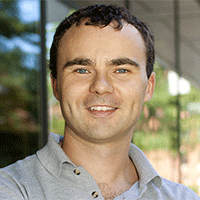
Keynote Title: Leveraging Soft Materials in Wearable Robots
Abstract: This talk will give an overview of our work on developing disruptive soft wearable robot technologies for augmenting and restoring human performance and how we characterize their performance through biomechanical and physiological studies so as to further the scientific understanding of how humans interact with such machines. Our efforts are the result a multidisciplinary team of students and research staff with backgrounds in engineering, materials science, apparel design, industrial design, biomechanics, and physical therapy, in addition to valuable collaborations with colleagues from Harvard, Boston University, and beyond. Current application areas include, enhancing the mobility of healthy individuals, restoring the mobility of patients with gait deficits, assisting those with upper extremity weakness to perform activities of daily living and preventing injuries of workers performing physically strenuous tasks. Our long term vision is for ubiquitous soft wearable robots that can be worn all day, every day, in the community, home, sporting and workplace environments.
Biography: Conor Walsh is the Paul A. Maeder Professor of Engineering and Applied Sciences at the John A. Paulson Harvard School of Engineering and Applied Sciences. He is the is the founder of the Harvard Biodesign Lab, which brings together researchers from the engineering, industrial design, apparel, biomechanics, physical therapy and business communities to develop and translate new disruptive robotic technologies for augmenting and restoring human performance. Technology from his lab is now commercially available in clinics for gait retraining through a collaboration with ReWalk Robotics and a lab spin-out, Verve, has launched a back assist product for workers performing physically strenuous tasks in industry. He is dedicated to training the next generation of biomedical engineering innovators and lab alumni have gone on to successful careers in academia, entrepreneurship, and high tech R&D positions in industry. Additionally, he co-founded the Soft Robotics Toolkit that serves as a platform the lab’s extensive STEM outreach activities. He is the winner of multiple awards including the Presidential Early Career Award for Scientists and Engineers and the MIT Technology Review Innovator Under 35 Award.
Wednesday, September 15
Mary Frecker
Leighton Riess Chair in Engineering, and Founding Director of the Center for Biodevices at The Pennsylvania State University
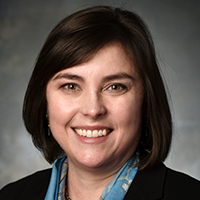
Keynote Title: Adaptive Structures and Material Systems: Community, career, and Research Highlights
Abstract: The field of adaptive structures and material systems has been advancing rapidly for more than 25 years, and the ASME ASMS research community has provided a welcoming and intellectually stimulating home for so many of us as we build our research careers. This presentation will offer reflections on an academic career built with the collaboration and support of the ASMS community, in the context of key research activities along with way. Projects from early work on design of compliant mechanisms with piezoelectric actuators to subsequent efforts aimed at optimal design of self-folding origami, morphing structures, and minimally invasive surgical instruments will be presented. Current work including optimal design of Lithium-ion battery actuators and 3D printed smart devices will also be highlighted. The presentation will conclude with suggestions for future research directions to continue the positive trajectory of the ASMS field and research community.
Biography: Mary Frecker is a Professor of Mechanical Engineering and Biomedical Engineering, the Leighton Riess Chair in Engineering, and the founding director of the Center for Biodevices at Pennsylvania State University. She was recently appointed Head of the Department of Mechanical Engineering at Penn State, and has served as Associate Department Head for Graduate Programs in Mechanical & Nuclear Engineering, as well as Director of the Bernard Gordon Learning Factory in the College of Engineering. Dr. Frecker has a B.S. from the University of Dayton, and an M.S. and Ph.D. in Mechanical Engineering from the University of Michigan. Upon joining Penn State in 1997, she was awarded the Pearce Endowed Development Professorship in Mechanical Engineering. Dr. Frecker has also been awarded the GM/Freudenstein Young Investigator Award by the American Society of Mechanical Engineers (ASME) Mechanisms Committee (2002), the Outstanding Advising Award by the Penn State Engineering Society (2002), the Outstanding Research Award by the Penn State Engineering Society (2005), and three ASME Best Paper awards (2009 and 2015). She served as an Executive Leadership in Academic Technology & Engineering (ELATE) Fellow in 2018-2019, and completed the Changing the Future for Senior Women Faculty in STEM leadership program in 2019. Dr. Frecker is a Fellow of the ASME, is currently Chair of the ASME Mechanisms & Robotics Technical Committee, and has served as Associate Editor of the ASME Journal of Mechanical Design, Chair of the ASME Adaptive Structures and Material Systems Technical Committee, and Executive Committee member of the ASME Aerospace Division.
Wednesday, September 15
Origami Packaging Project: Azusa High School-SMASIS Student Symposium Collaboration
Abstract: The SMASIS 2020 Student Symposium Organizers collaborated with the Azusa High School (AHS) Academy of Engineering to carry out an all-virtual educational outreach project. AHS second year engineering academy students were asked to design origami-based packaging cushions that reduce the impact forces within shipping egg cartons, which cause the eggs to break during transportation. The students worked remotely with their teammates to come up with proposed designs and used the given material and size constraints and other evaluation metrics to make a design selection. The students then tested the designs by conducting compression and impact tests at home to mimic the laboratory tests typically conducted in packaging engineering. The presentation will showcase the origami packaging designs devised by the students and the collaborative design process adopted by one of the teams. This coming year, students from AHS will work with the SMASIS Student Symposium on a brand new project on pneumatic actuators with applications in robotics.
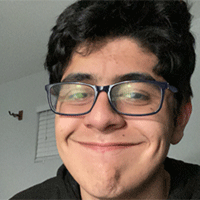
Oswaldo Cardenas
Azusa High School
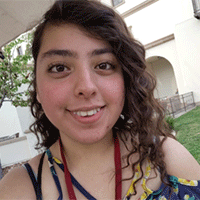
Getsemani Rodriguez
Azusa High School

Elizabeth Ruiz
Azusa High School
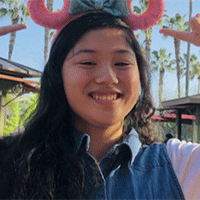
Lisa Ing
Azusa High School
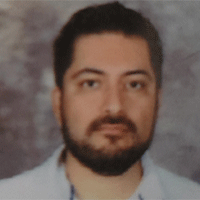
Andres Del Real
Teacher
Azusa High School
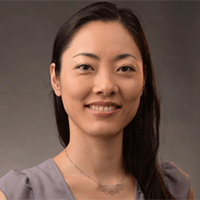
Kazuko Fuchi
Symposium Organizer
University of Dayton Research Institute
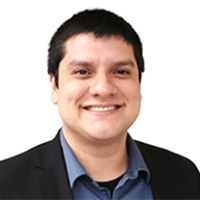
Edwin Peraza Hernandez
Symposium Organizer
University of California, Irvine